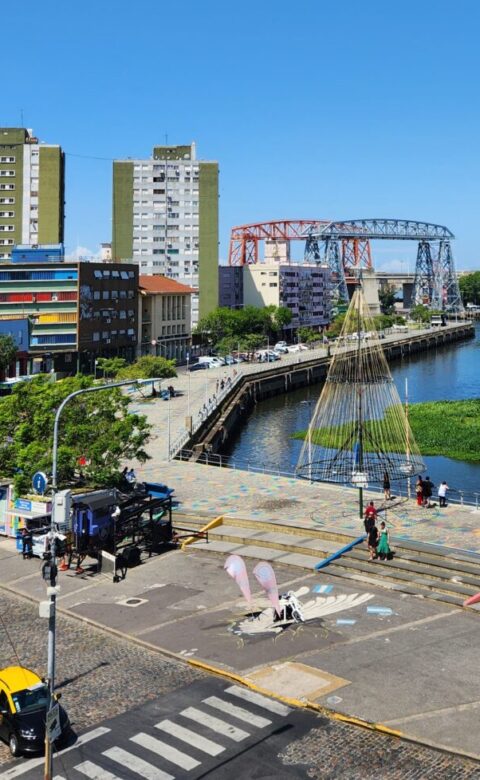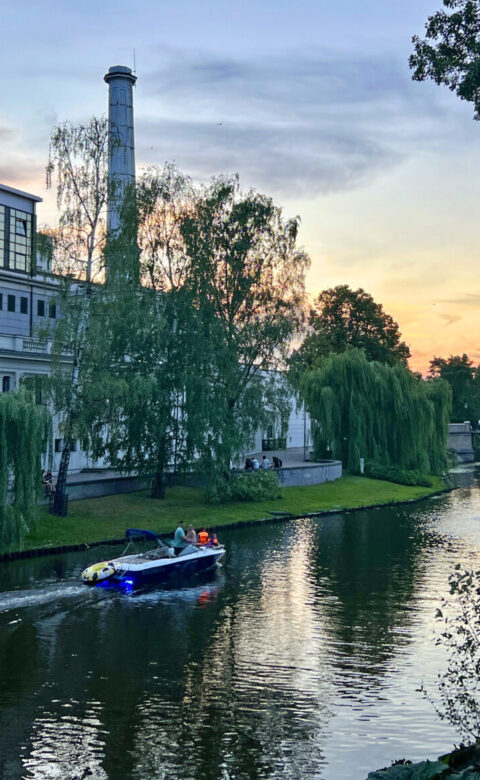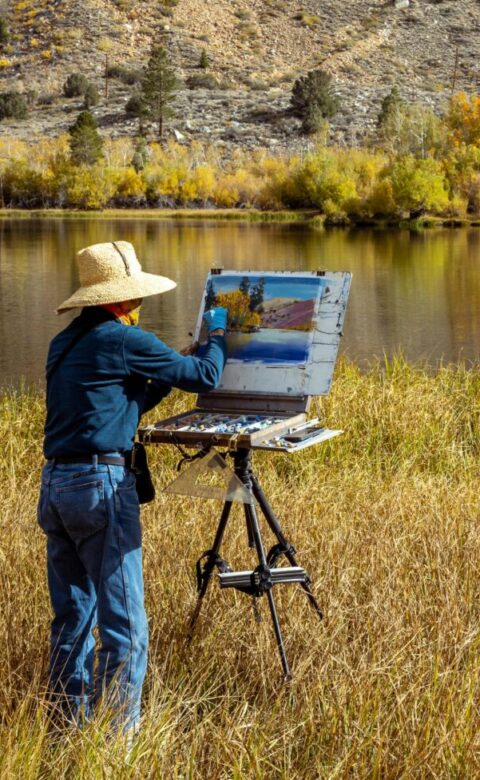Searing heat waves have been breaking all known high-temperature records in popular Northern Hemisphere summer holiday spots. The climate change warning bells in these places have been ringing for a while, and are only getting louder; our expectations of what we’ll find upon arrival should adjust accordingly. Is this finally the moment for us to reconsider our approach to travel planning?
We can no longer pretend that there isn’t a climate crisis, and continue treating mass tourism to warm-weather destinations like business as usual. When the heat is on, how can we be considerate of the challenges our host community is facing — and at the same time, be responsible for our own health and welfare? Here we consider some key questions travellers are asking themselves.
What areas are affected?
The last few months have been the hottest on Earth. In the Americas, Europe, North Africa, and Asia, large swathes of the travel map have been affected by soaring global temperatures.
Over the course of the past few weeks, heat warnings have been in place from coast to coast across Canada. Meanwhile in the US, baking in the midst of an extensive heatwave, in Death Valley, California — the “hottest place on Earth” — the temperature recently reached 53.3°C/128°F, according to the National Weather Service.
Official warnings are in place in countries like Italy, France and Spain, recognising a potential health threat during extended periods of heat nearing (and exceeding) 40°C from Milan to Marseille to Mallorca. At the same time, across the Mediterranean and into North Africa, wildfires have been scorching Greece, Italy, Turkey and Algeria. Much of Morocco and Tunisia is sweltering under high-temperature warnings as well.
In Asia, a “once-in-200 years” widespread heatwave has spanned India, Nepal, Laos and Vietnam (to name just a few of the region’s many countries struggling with the heat so far this year). And China recorded its highest temperature ever, with the prolonged heat now causing concern that severe drought may follow.
What can I do about my existing travel plans?
You may already have plans to visit a heatwave zone. Extreme temperatures aside, any traveller knows that at the best of times, there are caveats about visiting many parts of the world; but they’re more manageable if you do your research before you go.
Be prepared — if you’ve organised travel to an affected location, the first, best advice for any journey holds especially true; educate yourself. Seek out trusted sources to learn as much as possible about the situation on the ground. Ensure that what you’re reading is up to date, consult official health and travel bodies for local government advice, and if you have friends or family in the place you’re visiting, listen carefully to any concerns they may have.
Be flexible — whatever you planned for your ‘dream trip’ to a particular spot may no longer be an option. Even the heaviest of hitters, like the Acropolis of Athens, might be temporarily off-limits. Be ready to adapt to circumstances, prepare to skip some of the must-see sights, and read up on lesser-known attractions as a Plan B. Who knows, you may even uncover something special you wouldn’t have experienced otherwise (and help support those who need it most).
Be sensible — slow down and take your time. If you’re the type of traveller who likes to hit the ground running and keep going until you fall into bed exhausted, this can be the opportunity to learn how to pace yourself. Begin exploring early in the morning to enjoy the coolest part of the day; take it easy or rest during the hottest hours (try a nice siesta, it’s also good for the brain!); and venture out again when the heat wanes somewhat in the evening.
Be smart — wear lightweight, loose layers of pale-coloured, breathable clothing. Use adequate sun protection; take it easy on caffeinated drinks and alcohol; and keep hydrated (one great way is by teaming up a refillable bottle with an app to find nearby water points). If an air-conditioned museum, gallery or cinema is an option, make it part of your itinerary and soak up some culture while you cool down. Large, airy spaces like cathedrals can also be noticeably more comfortable than being outside.
What can I consider before I book?
This is where you can make the biggest impact; by changing how you travel. Fewer, longer trips are better than those that are shorter and more frequent; public transport is better than private; choosing something like a slow, immersive mountain holiday instead of a quick hop to a popular beach resort could be better for both you and the environment.
Be cautious — if you’ve got a chronic health condition or are in a high-risk category, think twice about choosing certain destinations. While this due diligence would be the case for travel in general, it’s particularly important in places where not only will the heat be physically taxing, but other factors like high humidity, smoke or smog can make it doubly so. It’s worth seeking medical advice beforehand.
Be careful — avoid putting yourself in danger unnecessarily, like planning to engage in highly active pursuits in the worst heat of the day, or thinking of going to remote areas during a heatwave. Even super-fit, highly trained people can get caught out by extreme temperatures. Leave already-stressed local emergency services free to save lives elsewhere, instead of rescuing you due to a bout of adventure travel overconfidence.
Be realistic — it’s essential to pay close attention to local government safety advice and heed warnings or recommendations at all times. And while many journeys will still be possible once you follow the official advice and take sensible precautions, there will be circumstances when reconsidering your trip altogether may be advisable. Sometimes, you just need to be safe rather than sorry.
Be patient — as mentioned above, it’s not always possible to travel at the ‘best’ time. But if there’s any flexibility in your schedule, go when the weather is less severe. For most hotspot destinations, the benefits of shoulder- or off-season travel multiply as prices for transport and accommodation drop; visitor numbers calm, making some of the most popular things to do and see much more accessible; and the doors of some of the harder-to-book attractions and restaurants swing wide. Once you beat the heat and try going at another time of year, you may never return to peak season travel!
Some of these tactics may not be your first (or second) choice, but by being thoughtful in your approach, you might just find that travelling more slowly, more carefully, or when most other people choose to stay at home has myriad rewards. And though we’ve focussed here on adapting to the current symptoms of the climate crisis, we must also be proactive about dealing with the cause. The fact is, travel, tourism and climate change are all connected — and each traveller has to address this, not least those departing countries that have dodged the heatwave bullet… so far.
As responsible travellers, not only do we need to manage the manifestation of climate change; but we also must transform our attitude toward travel, and our behaviour during the journey. We shouldn’t just accept this as an inevitability, the ‘new normal’ — our actions can have positive consequences, and it’s undeniably clear that the choices we make today have an increasing impact on the planet of tomorrow.







